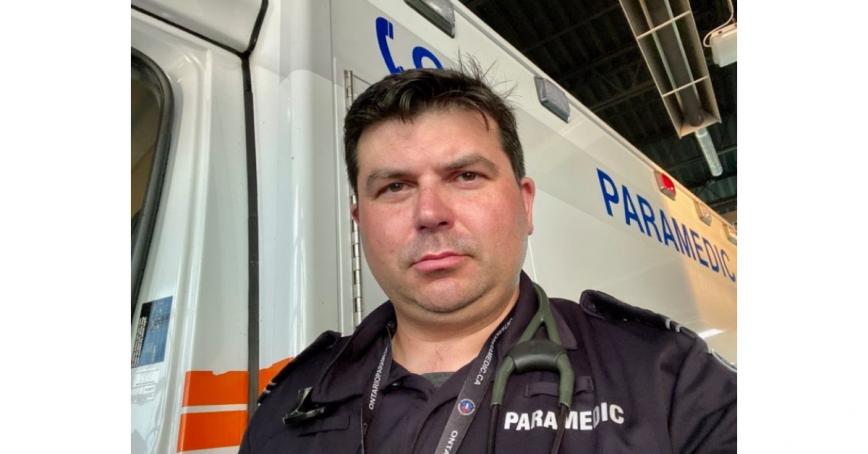MA in Learning and Technology student's research on mindfulness training for paramedics leaves impact

Research conducted by students at Royal Roads University often has real world results, and Master of Arts in Learning and Technology student Sean Hackett’s thesis work is no exception. Hackett’s research on stress levels and complacency amongst paramedics being mitigated by mindfulness has influenced the way professional development training is delivered to paramedics in Ontario.
Hackett says his thesis research was inspired witnessing his son, who has a heart condition, not receiving the best care.
“I questioned why people with best intentions, with excellent clinical education and well-practiced skills were making such mistakes with my son’s care. I used my time at Royal Roads to study this phenomenon and explored the root causes of stress and complacency.”
As Hackett explains, complacency is often the result of a combination of persistent high cognitive load and high emotional load, such as those experienced daily by paramedics, nurses and other health professionals, leading them to retreat to policies and algorithms in their responses.
Hackett wondered if an eight-week online mindfulness-based stress reduction course would make a difference in reducing complacency in paramedic care, and begun his thesis research.
Hackett recruited front-line paramedics working in Ontario to volunteer for his research, which included self-assessments prior to online mindfulness training, and after. His results were compelling.
“Independent volunteer raters assessed those interviews and found there was a definitive improvement perceived by the paramedics in their personal lives, especially relationships with family and partners,” Hackett says. “The participants reported being less stressed, more aware of the stressors that trigger them, and more attentive to themselves and those around them.”
As Hackett explains, reduced stress, improved attention and awareness theoretically leads to better levels of care.
The results were so compelling that his research got the attention of The Ontario Medical Advisory Committee, and has had an influence on continuing professional development for paramedics in that province.
MALAT Program Head Dr. Elizabeth Childs says she is thrilled to see her student’s research making a direct impact in the world.
“This change has a positive and tangible impact on healthcare practices which will benefit all Canadians and influence the practices of paramedic education both nationally and globally,” Childs says.
For Hackett, the greatest impact of his research is close to home.
“The reward is that someone like my son, who has needed and will likely need paramedic services again in his life, will get the best care.”